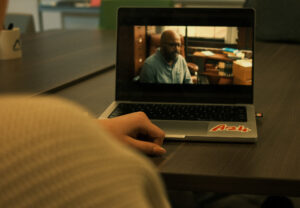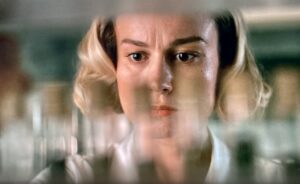Grade: C
Humans are still looking for the first signs of extraterrestrial life. Well, if we ever do encounter other living organisms, let’s hope that they survive on a strict lifestyle of Benadryl and cuddles. Daniel Espinosa’s newest science fiction horror “Life” shows us how we should be very afraid of things we do not understand, contrary to the maxim that many scientists and researchers abide by. And let’s just say that in “Life” sometimes people, or in this case creatures, do not play nice.
“Life” stars a group of six astronauts living and working aboard the International Space Station (ISS), a low orbit habitable satellite used to study biology, physics, astronomy and other fields in a microgravity environment. The crew successfully captures a space probe returning from Mars with soil samples that could prove the existence of life there. Things go horribly wrong when the creature, nicknamed—“Calvin”—becomes active in its new oxygen-rich environment and grows limbs, which he uses to escape and attack ISS pilot Rory “Roy” Adams (Ryan Reynolds). Like an intelligent but rabid dog, Calvin escapes the lab and evades and kills more crewmembers. It is not until senior medical officer Dr. David Jordan (Jake Gyllenhaal) lures Calvin into an escape pod, in an attempt to kill him in the vacuum of space, that there is any hope for the remaining crew member, quarantine officer Dr. Miranda North (Rebecca Ferguson), who enters a pod to return to Earth.
Ultimately, “Life” is a film that will have no effect on the in-space genre. The story gets caught up in the need to be a disaster movie, which takes away from character development and consideration of real scientific elements in low planetary orbit. Serious acting can be seen throughout, but real dramatic scenes are left out only until the end amidst the character’s impending doom. Even so, the greatest part of the whole story is left to the ending scene where there is a surprise twist of events and what happens henceforth is left up to the viewer’s imagination.
Although it fails to live up to expectations, which is contrary to its warm and inviting title, it makes a name for itself as a serious horror flick. It’s intelligent and rooted deep in the troubling nature of encountering new life. To this effect it is likely a recreation of one’s worst nightmare because it contains many of people’s favorite fears, such as drowning, suffocating, getting crushed to death or getting sent on an uncontrollable course into the vast emptiness of space. It plays up the cinematography, too, drawing on the interesting perspective of what it must feel like to be floating around inside space modules where nothing is right side up.
“Life” cleverly avoids the cliches; the scare-factor never occurs and not once will you question why the characters never listen to you yelling at the screen. Annoyingly, though — and you do not realize it until the credits roll — it bathes audiences in a sudsy bath of depression. Essentially after Calvin is first discovered in Mars soil samples, much to the delight of the crew, nothing good happens again; it steamrolls uncontrollably into many unfortunate encounters and eventual ruination.
There are far worse space movies than “Life,” such as the found footage science fiction horror “Apollo 18,” but unlike those, it still manages to keep a grip on its audience through pure astonishment. Besides that, it has failed to excite any new popularity with the horror genre.











